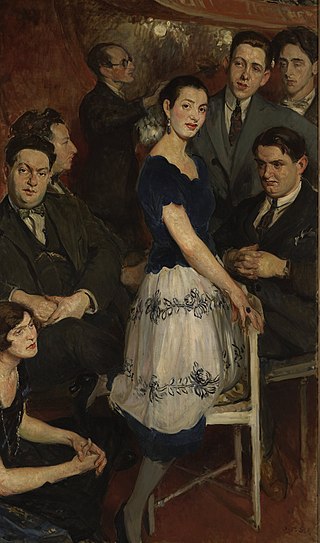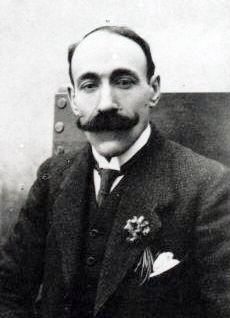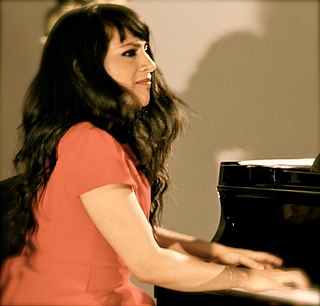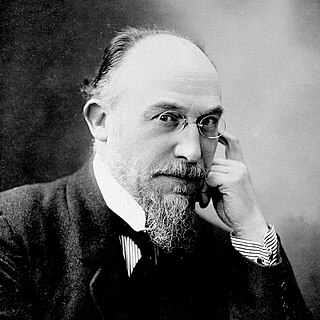Related Research Articles

"Les Six" is a name given to a group of six composers, five of them French and one Swiss, who lived and worked in Montparnasse. The name has its origins in two 1920 articles by critic Henri Collet in Comœdia. Their music is often seen as a neoclassic reaction against both the musical style of Richard Wagner and the Impressionist music of Claude Debussy and Maurice Ravel.

Albert Charles Paul Marie Roussel was a French composer. He spent seven years as a midshipman, turned to music as an adult, and became one of the most prominent French composers of the interwar period. His early works were strongly influenced by the Impressionism of Debussy and Ravel, while he later turned toward neoclassicism.

Pierre Louis Bernac was a French singer, a baryton-martin, known as an interpreter of the French mélodie. He had a close artistic association with Francis Poulenc, with whom he performed in France and abroad. Poulenc wrote 90 songs for him during their 25-year musical partnership.

Ricardo Viñes y Roda was a Spanish pianist. He gave the premieres of works by Ravel, Debussy, Satie, Falla and Albéniz. He was the piano teacher of the composer Francis Poulenc and the pianists Marcelle Meyer, Joaquín Nin-Culmell and Léo-Pol Morin.

The Société nationale de musique was an organisation in late 19th and early 20th century Paris, promoting French music and allowing rising composers to present their works in public. It was founded in the aftermath of France's defeat in the Franco-Prussian War of 1870–71 on a strong tide of nationalist feeling, and at first excluded all music by non-French composers. In its first 30 years it gave the premieres of works by composers including Saint-Saëns, Chabrier, Franck, Fauré, Dukas and Debussy.
Sandrine Piau is a French soprano. She is particularly renowned in Baroque music although also excels in Romantic and modernist art songs. She has the versatility to perform works from Vivaldi, Handel, Mozart to Schumann, Debussy, and Poulenc. In addition to an active career in concerts and operas, she is prolific in studio recordings, primarily with Harmonia Mundi, Naïve, and Alpha since 2018.

Jean Dubé is a Canadian-French concert pianist. In 2002 he won the International Franz Liszt Piano Competition.

Anne Queffélec is a French classical pianist, born in Paris.
Henri Collet was a French composer and music critic who lived in Paris.
Marylène Dosse is a French-born American classical pianist.

Shani Diluka is a Monegasque pianist of Sri Lankan descent. She was among those to benefit from a programme initiated by Princess Grace of Monaco, which allowed children to receive music lessons integrated into their schooling. She received the first prize in the Académie de Musique. She subsequently studied with Odile Poisson, a pupil of Pierre Sancan. Enrolled in the Conservatoire de Paris in 1997, she studied with Georges Pludermacher and François-Frédéric Guy and later with Marie-Françoise Bucquet, Nicholas Angelich and Bruno Rigutto.
Jean-Joël Barbier was a French writer, musicologist and pianist.

The Victoires de la musique classique are an annual French classical music award event founded in 1986. The awards are the classical equivalent of the popular music awards Victoires de la Musique and the Victoires du Jazz. Most of the awards are for actual performers, orchestras, composers, etc. as opposed to the Diapason d'Or given to recordings, though there is an Enregistrement français de musique classique de l'année.

The Premier Menuet is a Neoclassical piano piece by Erik Satie. Written in June 1920, it was his last composition for solo piano. It was published by Les Éditions de La Sirène in 1921.
Guy Sacre is a French composer, pianist and musical critic.

Jean-François Gardeil is a French baritone and theatre director. He is also the founder and artistic director of the Chants de Garonne.

Stéphane Degout is a contemporary French baritone. He grew up in Saint-Jean-de-Niost (Ain) and has been living in Lyon since 1995.
Florence Katz is a contemporary French a mezzo-soprano, graduated from the Conservatoire de Paris, she is also a singing teacher at the Conservatory of Bourg-la-Reine/Sceaux. She specializes in the French repertoire. She is a recipient of the Darius Milhaud Prize.
The Ludwig Quartet is a French string quartet ensemble founded in 1985 and leading an international career. It is composed of Sébastien Surel, Manuel Doutrelant, Violaine Despeyroux (viola) and Anne Copéry (violoncello).

Suzanne Jeanne Marie Peignot, was a French soprano, a privileged interpreter of the group Les Six. Her friends nicknamed her la Reine des mouettes, an allusion to one of the melodies she successfully sang. As for him, Erik Satie had nicknamed her ma très petite da-dame.
References
- ↑ Valsesia Music Official website
- ↑ Billy Eidi on the webwite of the Schola Cantorum de Paris